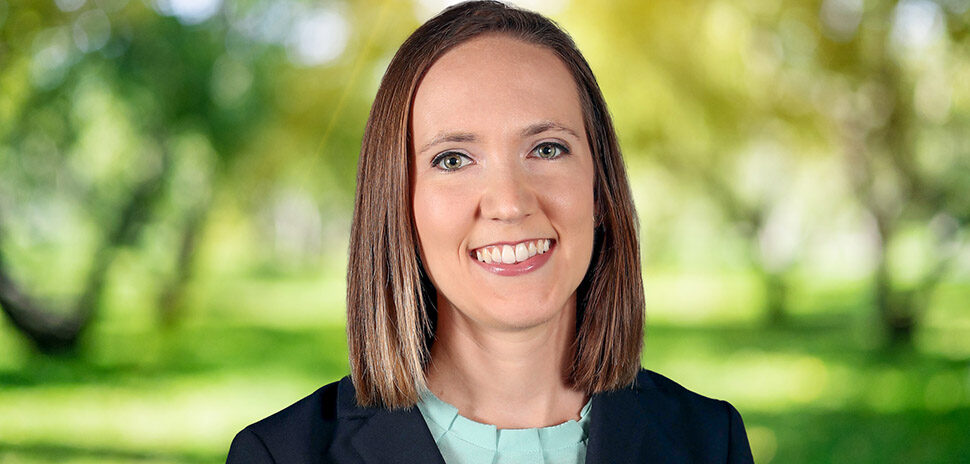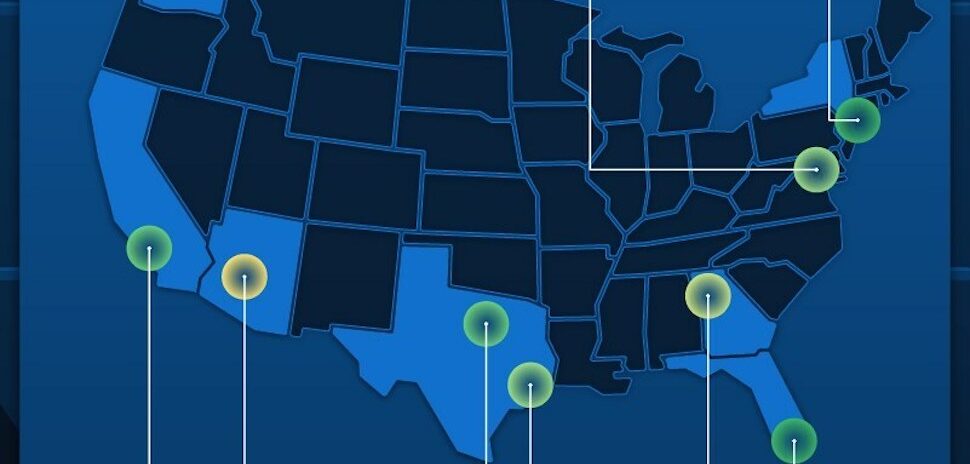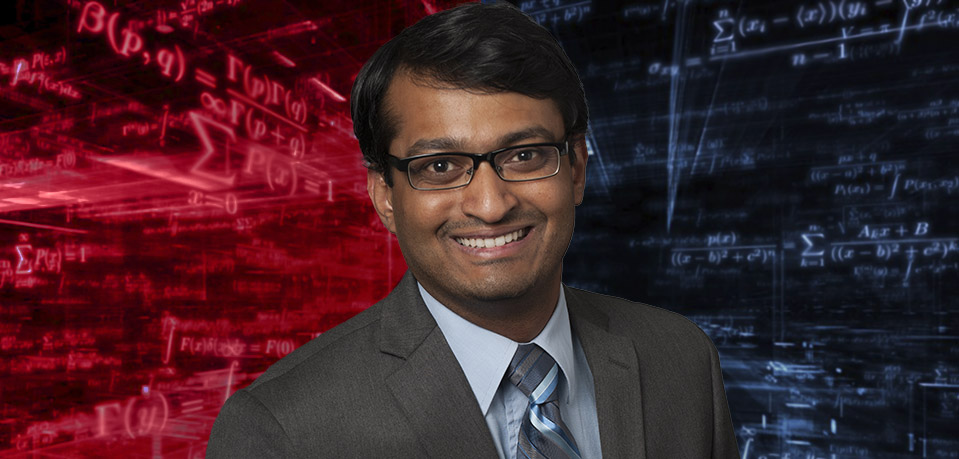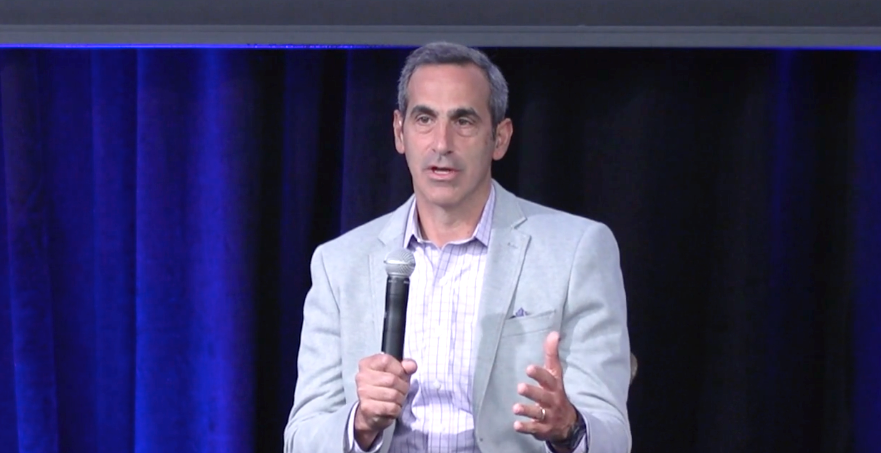DFW Airport Gets $35M DOT Grant for Central Utilities Plant, Terminal D Energy Enhancements
The electric Central Utilities Plant will run on 100% renewable electricity, aiding DFW AIrport in its goal to be carbon net zero by 2030. Energy enhancements to Terminal D will include smart glass, sensors, high-efficiency HVAC, eco-friendly roofing, and passenger boarding bridges with advanced controls for use in DFW’s digital twin program.
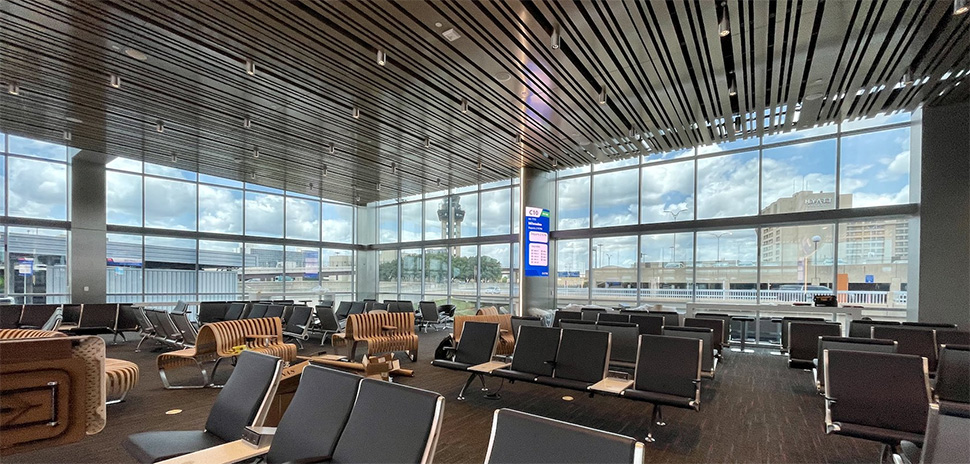
View Smart Glass has already been installed in other terminals at DFW Airport. [Courtesy photo]
Dallas Fort Worth International Airport is receiving $35 million in grant funding from the U.S. Department of Transportation to help fund the second phase of its electric Central Utilities Plant and energy enhancements at Terminal D.
The funding comes via the Airport Terminal Program of the Infrastructure Investment and Jobs Act. The two initiatives are part of DFW Airport’s commitment to achieving Net Zero Carbon Emissions by 2030.
‘eCUP’ will run on 100% renewable electricity
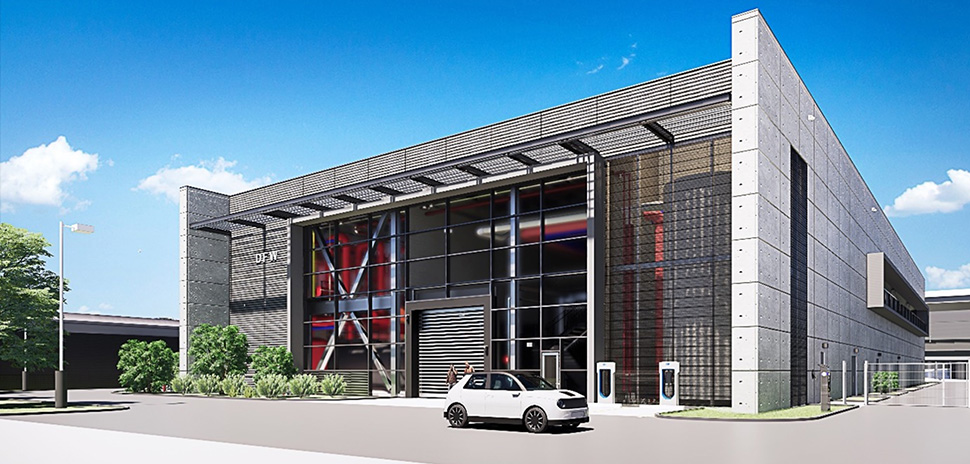
DFW Airport plans to build a new zero-carbon central utility plant, or eCUP. [Photo: DFW Airport]
The electric Central Utilities Plant (eCUP) will receive $10 million from this grant. Last year, the eCUP received $35 million in funding through the Infrastructure and Investment Jobs Act. The eCUP will provide additional heating and cooling capacity to support the future growth of DFW, including the Central Terminal Area. Also, the eCUP will run on 100% renewable electricity and significantly reduce overall airport emissions.
Terminal D will get modern systems including smart glass
The airport said that the energy enhancements to Terminal D will replace aging critical infrastructure with modern systems.
This plan includes adding sensors, smart glass, high-efficiency HVAC, eco-friendly roofing, and passenger boarding bridges with advanced controls for use in DFW’s digital twin program.
The improvements will improve energy efficiency significantly and reduce oxides of nitrogen emissions to improve local air quality.
The project also will enhance the customer experience at Terminal D by providing a cleaner, more comfortable environment, DFW said. The airport has installed smart glass in other terminals and successfully maintained a comfortable temperature while reducing energy consumption. The improvements project will receive $25 million.
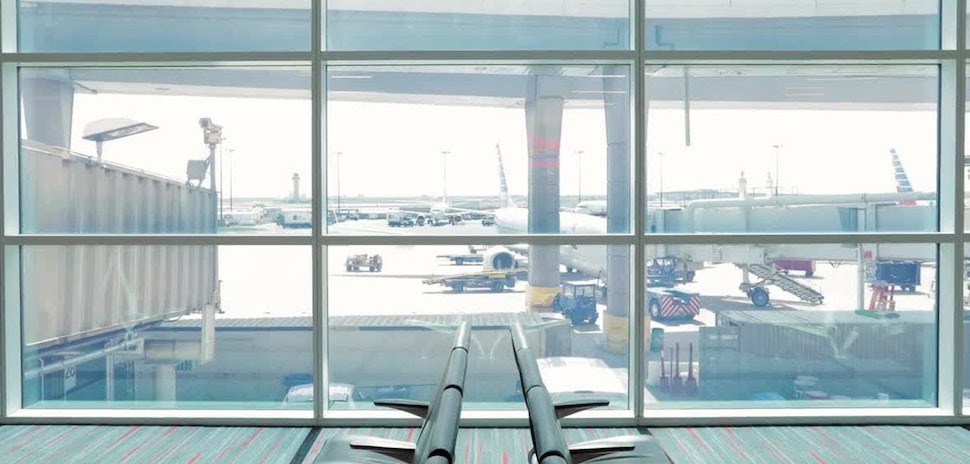
View Smart Glass has already been installed at other DFW Airport terminals. [Photo: View]
Aiming to be carbon net zero by 2030
DFW Airport is the world’s largest and North America’s first carbon-neutral airport. Environmental sustainability is an integral part of how the airport operates and functions, and it is committed to taking steps to mitigate its impact on the environment.
The airport said it has committed to being carbon net zero by 2030—some 20 years ahead of the industry goal of 2050.

Get on the list.
Dallas Innovates, every day.
Sign up to keep your eye on what’s new and next in Dallas-Fort Worth, every day.
R E A D N E X T
-
Last year, Dallas-Fort Worth International Airport partnered with Dallas-based Turn Compost to collect and haul food waste from terminal concessions. Since March 2021, 60 tons have been composted. Community farms and gardens including Bonton Farms, F.A.R.M., Misty Moon Farms, and many others benefit from donated animal feed and compost.
-
A new study by Upgraded Points looked into which U.S. airports offer the best lounges, and out of 50 airports, North Texas' own Dallas-Fort Worth International Airport ranked No. 4. "Airport lounges used to be thought of as exclusive places for elite flyers," said Upgraded Points Founder Alex Miller. "But over the last several years these lounges have become a popular attraction for all types of travelers, particularly those dealing with layovers and flight cancellations."
-
SMU researchers aim to help address problems in the broad area of computational mathematics for sustainability—such as the management of the energy grid under intermittent renewable power. The research is aimed at developing new algorithms for materials design, bioengineering, and power grid applications. Researchers will use SMU's high-performance computing system—enhanced with an NVIDIA DGX SuperPODTM—as well as the supercomputing resources at Argonne National Laboratory.
-
Beginning today, Dallas Fort Worth International Airport is hosting its first-ever Innovation Week—a four day-event promoting "a culture of innovation, discovery, and engagement." The week will include speaker panels, education sessions, workshops, and tech demos to celebrate what Puopolo calls the "the everyday innovator."
-
Engaging in passionate debates “sounds pretty typical if you’re a tech company,” said DFW Airport Executive Vice President of Innovation Paul Puopolo. “But if you’re a large, regulated organization—healthy debate, that’s different." Having people around the table is one thing, he says. Getting them to challenge each other and not be offended, well, that’s another thing. "To do innovation effectively, you’ve got to have healthy conflict," Puopolo said.


![]()











